|
The calendar year is half over, and I started this blog a year ago this month. I thought it would be a good time to review some of the major themes that have emerged and to provide a few updates. Last year the country was absorbed by the COVID-19 pandemic and the 2020 presidential election, and many of my blogs focused on these issues. Donald Trump dominated the news cycle which prompted me to write about presidential power, the Supreme Court vacancy, and politics. Trump’s refusal to concede the election to Joe Biden lead to blogs on the Capitol riot, his second Impeachment trial, and the attack on voting rights. The pandemic started in early 2020 and continues to threaten the world for the foreseeable future. Pandemic related blogs focused on face masks, vaccines, public health restrictions and 1st Amendment rights, and how politics permeated the government’s response. No review of 2020 would be complete without mention of the Social Justice movement and extremism is America. My blogs on QAnon, militias, and the Black Lives Matters protests touched on these issues. We are witnessing an explosion of gun violence in this country, and I have written extensively about guns in America. President Biden’s administration has already secured trillions of dollars in COVID relief spending, and is pushing for trillions more for infrastructure spending. Government spending and the threat of inflation will continue to be an interest of mine, as will be the America military’s exodus from Afghanistan after nearly twenty years of fighting. But the news is not all bad, and I am optimistic about the future. So, I will try and inject some lighter fare into my posts. Below I have broken down most of my blog posts into broad categories, with a link to each. Many of these have been updated since I originally posted them, which can be found at the end of the individual blogs. For each category I have summarized the major developments since the original postings. Original Posting Date Blog Title 07-21-2020 Vote 2020. 10-12-2020 The Electoral College. Love it or leave it? 10-18-2020 Millions of Americans have voted, and so have I. 11-22-2020 Tired of politics as usual? I am! 06-28-2021 Voting rights under attack! 07-27-2020 Wear a face mask. Don’t let politics Trump science, Part 1 07-31-2020 Wear a face mask. Don’t let politics Trump science, Part 2 08-08-2020 Are pandemic restrictions violating your 1st Amendment rights? 08-15-2020 Public health should be above politics. Was a line crossed in favor of Black Lives Matter protests? 12-22-2020 All I want for Christmas is a COVID-19 vaccine. 02-28-2021 COVID-19 Vaccine update. J&J vaccine gets emergency use authorization. 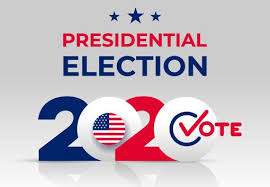 2020 Presidential Election 08-30-2020 A tale of two conventions, part 1. 09-05-2020 A tale of two conventions, part 2. 10-29-2020 Presidential leadership and Donald Trump’s reelection chances. 11-08-2020 Hope triumphed over fear. 12-15-2020 Is the 2020 presidential election finally over? 01-08-2021 Insurrection in America. 01-29-2021 Is the 2nd Impeachment trial of Donald Trump a good idea? 02-16-2021 Donald Trump is acquitted! 06-01-2021 Republicans block formation of a January 6 Capitol riot commission. 04-05-2021 Guns in America, Part 1. More mass shootings and calls for gun control. 04-18-2021 Guns in America, Part 2. The NRA is down, but not out. 05-01-2021 Guns in America, Part 3. Gun laws through the years. 05-12-2021 Guns in America, part 4. Common sense gun reforms. 09-26-2020 The hypocrisy of Senator Mitch McConnell. 12-05-2020 The new conservative court takes on religious freedoms during pandemic. 10-06-2020 Is Joe Biden a Socialist? 01-03-2021 2021 brings hope and challenges. 03-20-2021 $1.9 trillion American Rescue Plan of 2021.  Presidential Authority 09-13-2020 Is the president’s payroll tax deferral a good thing? 01-21-2021 Time to reconsider the presidential pardon?  Extremism  Robinhood 02-08-2021 Robinhood and GameStop: A cautionary tale.  Camino de Santiago Updates Voting Rights: On July 1, 2021 the Supreme Court ruled that the states may impose restrictions on voting, upholding restrictive voting laws recently passed in Arizona. The Court’s majority ruled that the Voting Rights Act of 1965 can be used to strike down voting restrictions only when they impose substantial and disproportionate burdens on minority voters (https://www.nytimes.com/2021/07/01/us/politics/supreme-court-arizona-voting-restrictions.html). In other words, it is constitutional for states to put voting restrictions in place as long as they are only an inconvenience, and do not prevent someone from voting. Writing for the majority, Justice Alito listed the following guideposts for lower courts to follow in evaluating voting restriction cases:
This last guidepost gives powerful ammunition to any state legislature intent on making access to voting more difficult. The Supreme Court’s ruling will make it difficult to oppose voting restrictions being put into place in many GOP governed states. It will be interesting to see if this ruling will hamper the Department of Justice’s pending lawsuit against the new Georgia voting law. COVID-19 Pandemic: The pandemic is far from over, but you wouldn’t know it by walking down the streets of most American cities. The world recently surpassed the grim milestone of 4,000,000 deaths due to COVID-19. This was the official death toll, but the actual death toll is certainly much higher. Approximately 25% of the world’s adult population has received at least one shot of COVID-19 vaccine, mostly in the rich countries. Less than 1% of the adults in low- income countries (Africa, Asia, South America, Central America) have received a single shot of the vaccine.
On June 15th the U.S. surpassed 600,000 deaths due to COVID-19, and the death rate continues to climb, mainly among those who have been unvaccinated. President Biden missed his July 4th goal of getting 70% of eligible adults vaccinated with at least one shot. As of this writing just under 68% of adults have received at least one shot. COVID-19 cases have come down significantly in the U.S. over the past few months due to the highly effective vaccines. As a result, most areas of the country have dropped all COVID-19 related restrictions. Mask mandates, social gathering restrictions, and indoor business restrictions have disappeared, and domestic travel has returned with a vengeance. But this rosy picture hides vast geographic disparities which show a significant rise in hospitalization rates and deaths due to COVID-19 in regions with low vaccination rates. Rural areas, which tend to be conservative, have seen a recent rise in COVID-19 cases. Low vaccination rates make these populations vulnerable to the highly contagious Delta variant. Arkansas and Missouri are seeing the worst outbreaks, followed by Florida, Nevada, Wyoming, and Utah. But unvaccinated people are driving increases in COVID-19 cases even in areas with high vaccination rates. This corresponds with the lowering (or elimination) of COVID restrictions and the emergence of the Delta variant. I live in a county north of San Francisco, where 68% of eligible people are fully vaccinated and another 8% are partially vaccinated. But there has been a troubling uptick in COVID-19 cases and hospitalizations, even before the full effects of 4th of July gatherings are felt. The vast majority of the hospitalized COVID-19 patients are unvaccinated. Contact tracing has shown that most of the current COVID-19 cases in my county are being fueled by social gatherings and leisure time activities, with the highest rates in the 18-32 age group. Vaccine hesitancy continues to align significantly with party affiliation. According to a recent Washington Post-ABC News poll, 6% of Democrats said they are not likely to get vaccinated, compared with 47% of Republicans, including 38% of Republicans who said they definitely will not get the vaccine https://www.washingtonpost.com/politics/post-abc-poll-biden/2021/07/03/54e95b6e-db43-11eb-8fb8-aea56b785b00_story.html. First detected in India, the Delta variant is estimated to be 60% more transmissible than earlier variants. The Delta variant has rapidly spread around the globe and is currently driving COVID-19 outbreaks in African, Asia, Australia and South America. The CDC has determined that the Delta variant is now dominant in the U.S. and is spreading rapidly in unvaccinated populations. Researchers in France, Israel and Britain have shown that a single dose of the Pfizer or AstraZeneca vaccine is largely ineffective against the Delta variant. Therefore, delaying the second shot in order to vaccinate more people is no longer an effective option. New variants, like the Lambda variant spreading rapidly in South America, provide more reason to quicken the pace of vaccination around the world. The unvaccinated population provides a breeding ground for new variants, and short of shutting down the world, vaccines are our major defense. Pfizer made news last week by announcing that it would seek FDA approval for a COVID-19 booster vaccine. The CDC and NIH strongly rejected the need for vaccine boosters at this time, refuting the claims made by Pfizer. But many in the scientific community acknowledge that it is not a matter of if, but when booster shots will be needed. Preliminary research out of Israel suggests that the Pfizer vaccine is less effective against the Delta variant and there is a decline in antibody levels against the virus over time. I think that we should be prepared for the eventuality of booster shots, but we need to think through the ethical issues involved. Is it ethical to provide booster shots to fully vaccinated people in wealthy countries when the vast majority of people in poorer countries remain unvaccinated? Israel plans to offer booster shots of the Pfizer vaccine to adults with weakened immune systems, and Britain has announced plans to provide booster shots to its vulnerable populations and front-line workers. It makes sense to protect our most vulnerable, but it seems premature to do so when there is a limited supply of vaccines. The FDA warned this week that the Johnson & Johnson COVID-19 vaccine can lead to an increased risk of Guillain-Barré syndrome, a rare neurological condition. The incidence is very rare, and the benefits of this highly effective vaccine outweigh the risks. But I fear that this warning from the FDA will further diminish the acceptance of this much needed vaccine. The vast majority of hospitalizations and deaths due to COVID-19 are occurring in unvaccinated people. The evidence is overwhelming. Unvaccinated people pose a risk to themselves and to vulnerable populations who have been vaccinated. No vaccine is 100% effective and breakthrough infections do occur. The incidence of COVID-19 is eleven times higher in unvaccinated people than vaccinated ones. If that isn’t an incentive to get vaccinated, I don’t know what is. Encourage everyone you know to get vaccinated. Regarding the use of face masks, do like I do; don’t leave home without one. More updates in my next post. If you enjoy reading this type of commentary please subscribe to my blog and tell a friend. You will receive an email notification when new blogs are posted. The email will come from the site’s email: armchairamerican1776 @gmail.com. Thanks, Armchair American
0 Comments
Leave a Reply. |
AuthorThe Armchair American. Archives
November 2024
Categories
All
|
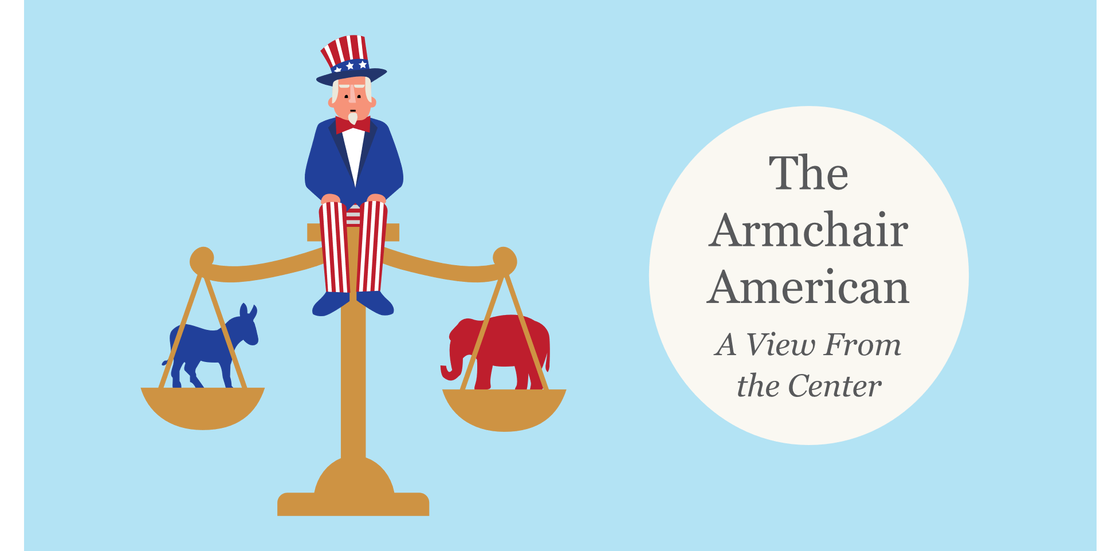

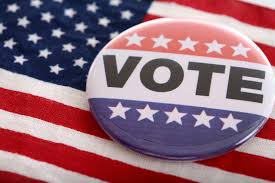
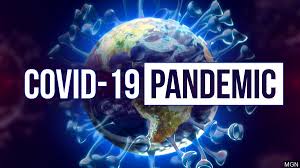


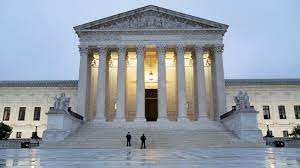
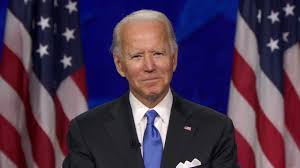
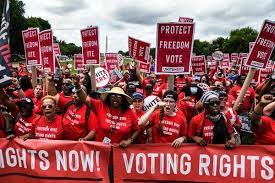
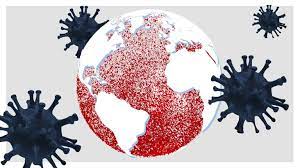
 RSS Feed
RSS Feed